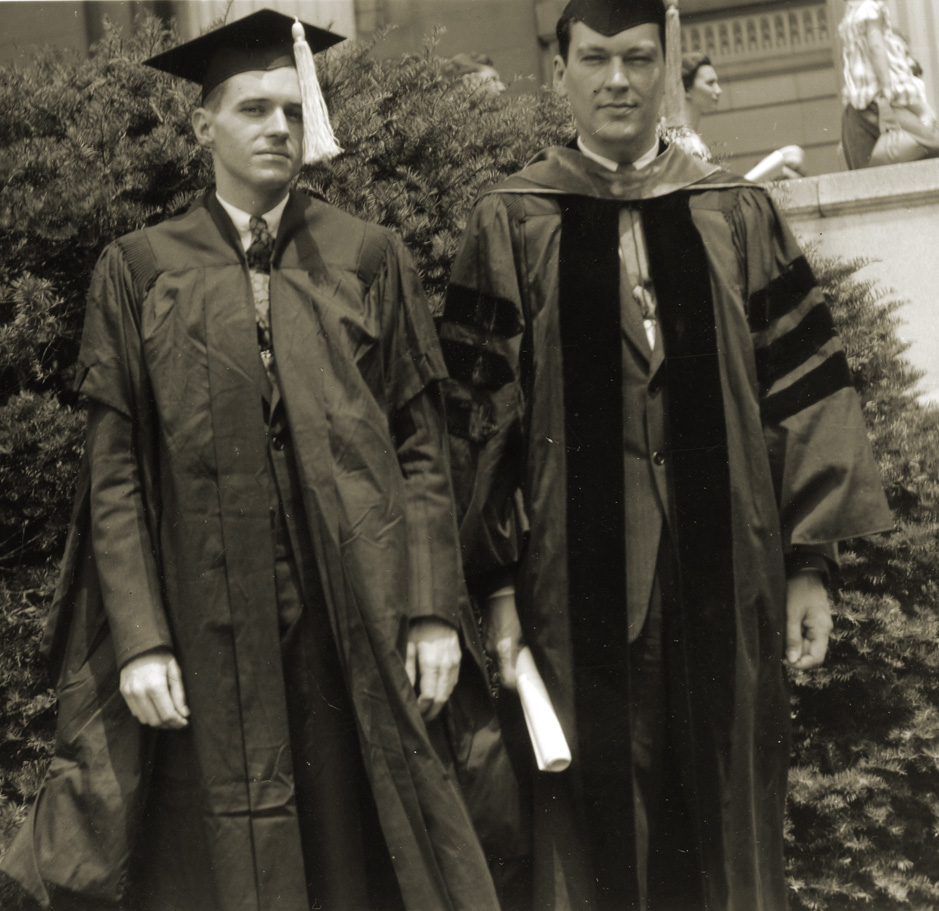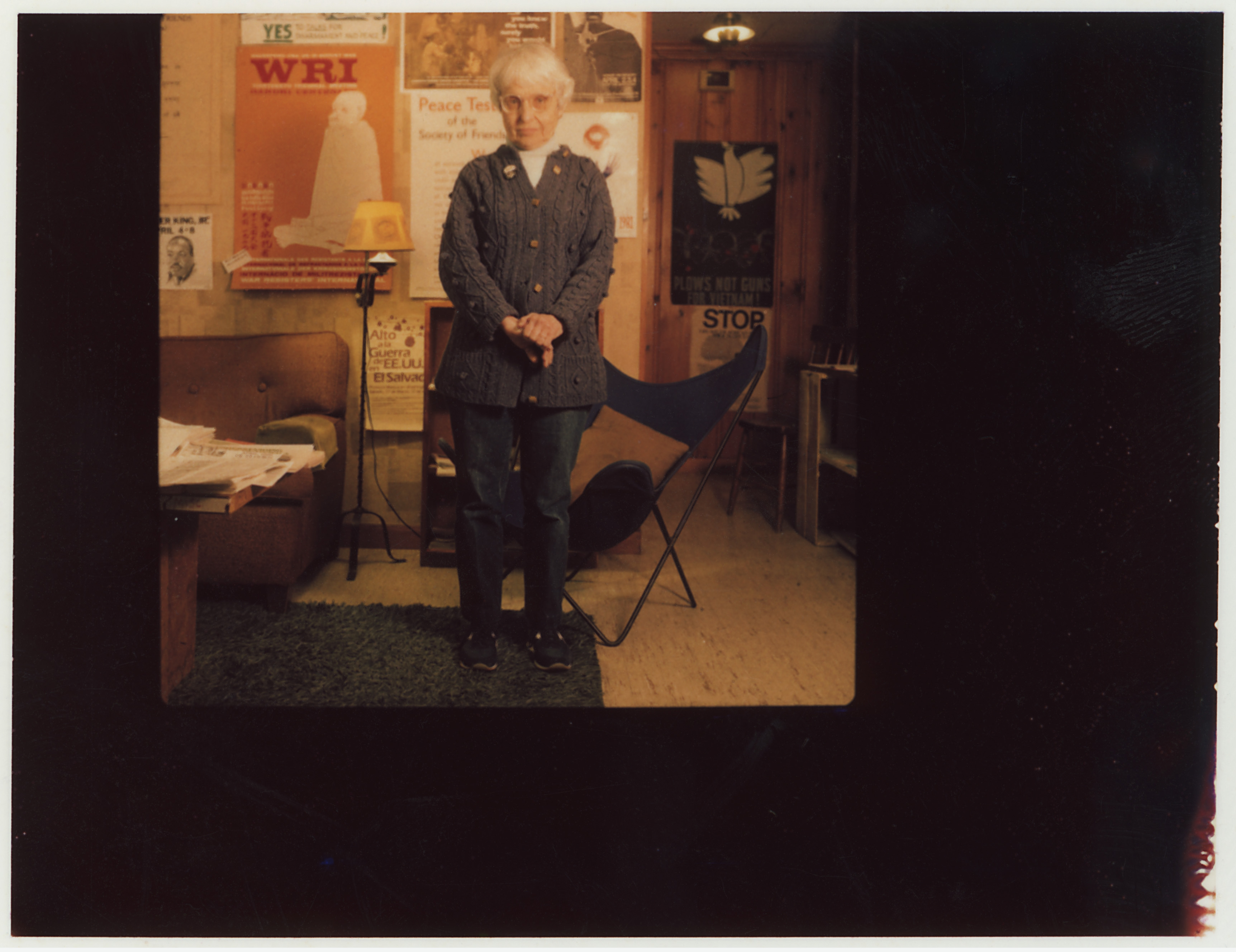John H. Coon Ledger
Owner of a general store and a farmer in Sheffield, Massachusetts. Ledger includes lists of customers, the goods that they purchased, and how they paid (cash and exchange of goods or services).
Owner of a general store and a farmer in Sheffield, Massachusetts. Ledger includes lists of customers, the goods that they purchased, and how they paid (cash and exchange of goods or services).

A scholar of eighteenth century British literature and culture, Thomas W. Copeland began what would become more than half a century of research on the statesman and political philosopher Edmund Burke while studying for his doctorate at Yale (1933). After publication of his dissertation in 1949 as Our Eminent Friend Edmund Burke, Copeland was named managing editor of the ten-volume Correspondence (1958-1978). After academic appointments at Yale and the University of Chicago, he joined the faculty at UMass in 1957, remaining here until his retirement in 1976. A chair was established in his name in the Department of English.
The Copeland Papers are a rich collection of personal and professional correspondence, journals and writings from Copeland’s Yale years, manuscripts, typescripts, notes, and draft revisions of his works on Edmund Burke, and a journal chronicling Copeland’s four-year exercise in the daily practice of writing.
Michael Cornish first became interested in gravemarkers while writing a senior thesis at the Massachusetts College of Art, and since that time, he has prepared numerous exhibitions of his photographic work and conducted important research on colonial markers. Widely known for his work on the carver Joseph Barbur of West Medway, Mass., and a group of “tendril carvers” in southeastern Massachusetts, Cornish speaks frequently to historical societies around Massachusetts, delivering slide shows tailored to the particular area. An inventory photographer for the City of Boston’s Historic Burying Ground Initiative, he has also consulted for several towns regarding the preservation and rehabilitation of their burying grounds. As a member of the AGS Board of Directors, Cornish has worked in various capacities and played an active role in organizing and participating in the annual conventions, programs, exhibits, and tours.
The Cornish Collection includes many thousands of photographs and direct rubbings of early New England gravestones, primarily in Massachusetts and Connecticut, focusing on their beauty and artistic merit. Originally inspired by the work of Harriette Merrifield Forbes, and encouraged by Dan and Jessie Farber, Cornish photographed in a variety of formats, including Kodachrome transparencies, black-and-white negatives, and black-and-white prints. The collection also includes research notes relating to his work on Barbur and other stonecarvers.
“The Bill Cosby Radio Program” was a daily syndicated radio series of roughly 5-minute comedy inserts by Cosby and produced by Frank Buxton (who also served as the show’s announcer and comedic “straight man”). Along with sound man Gene Twombly, Cosby and Buxton improvised the episodes, which were syndicated to more than 200 top-40 radio stations around the nation on transcription discs by The Coca-Cola Company and distributed by McCann-Erikson (Coke’s ad agency). The show marked the beginning of Cosby’s long association with Coca-Cola and was the debut of many characters from Cosby’s comedy.
This collection features twelve radio broadcast transcription discs (one 12-inch disc and eleven 16-inch discs) of “The Bill Cosby Radio Program” containing programs #21-130 (1968 Jan 29-Jun 24) and programs #141-145 (1968 Jul 15). The disc labels contain the original program description and art.
The Council for Fair School Finance began its fight in 1978 when it filed a lawsuit (McDuffy v. Secretary of the Executive Office of Education) to require Massachusetts to meet its constitutional obligation to provide a quality education for all schoolchildren. The suit was quickly suspended due to recently enacted school reform legislation. Within five years, the Council took up the suit once more, and again further reform legislation was enacted that prevented the suit from going to trial. Finally in 1993, the case was heard and decided in favor of the plaintiffs; three days later the governor signed the Education Reform Act of 1993. By the end of the decade, the promise of the McDuffy decision had not yet been fully realized and the Council filed a second suit (Hancock v. Commissioner of Education). In April 2004, Superior Judge Margot Botsford issued a report that found the state’s efforts to fix the problems identified in the previous case were insufficient and that the plaintiffs were entitled to remedial relief. The Supreme Judicial Court, however, did not uphold the recommendation and the motion for relief was denied.
The collection consists of administrative records, including documents created early in the Council’s history, minutes of Council meetings, media reports, research materials, and financial records.
A noted figure in modernist theater, Edward Gordon Craig was born in Stevenage, Hertfordshire, on Jan. 16, 1872, the illegitimate son of the renowned actress Ellen Terry and the architect Edward William Craig. Although the most productive portion of his career was brief, he exerted a strong influence on the field of set design and lighting, and was fairly prolific as a writer on theatre.
The six audio recordings that comprise the Craig collection originated from a series of BBC radio talks in the early 1950s. The reel to reel tapes include Craig’s reminiscences of Ellen Terry, Isadora Duncan, the old school of acting, celebrities, masks, and how he played Hamlet in Salford, Lancashire, but are more generally his thoughts on acting, the theater, and art.

Guy Chester Crampton was an insect morphologist who taught at the University from 1911 until his retirement in 1947. Crampton earned his B.A. from Princeton in 1904, his M.A. from Cornell in 1905, and a Ph.D. from the University of Berlin in 1908, then began his professorship at the University, where he was a dedicated teacher and active researcher. A life-long bachelor, Crampton died from a heart attack in 1951.
The Guy C. Crampton Papers include published articles by Crampton, including a guide to the insects of Connecticut, published in 1942, as well as Crampton’s lecture notes for one of his courses in the Department of Entomology.
The horticulturist, Jim Crockett (1915-1979) earned wide acclaim as host of the popular television show, Crockett’s Victory Garden. A 1935 graduate of the Stockbridge School of Agriculture at UMass Amherst, Crockett returned home to Massachusetts after a stint in the Navy during the Second World War and began work as a florist. A small publication begun for his customers, Flowery Talks, grew so quickly in popularity that Crockett sold his flower shop in 1950 to write full time. His first book, Window Sill Gardening (N.Y., 1958), was followed by seventeen more on gardening, ornamental plants, and horticulture, culminating with twelve volumes in the Time-Life Encyclopedia of Gardening. He was the recipient of numerous awards for garden writing and was director of the American Horticultural Society. In 1975, he was contacted about a new gardening show on PBS, Victory Garden, which he hosted until his death by cancer in 1979.
Documenting an important career in bringing horticulture to the general public, the Crockett Papers contain a mix of professional and personal correspondence and writing by Jim Crockett from throughout his career. The collection includes a particularly extensive set of letters from George B. Williams, Crockett’s father in law, and copies most of his publications.
In the late 1870s, a middle-aged farmer from Richmond, Minnesota, Samuel Crouch, married a woman eleven years his junior and asked her to relocate to the northern plains. Possessed of some solid self-confidence, Rebecca left behind her family a friends and set out to make a life for herself, adjusting to her new role as step-mother and community member, as well as the familiar role of family member at a distance.
The Crouch Papers includes approximately 225 letters offering insight into life in Minnesota during the late 1870s and early 1880s, and into the domestic and social life of a woman entering into a new marriage with an older man. Rebecca’s letters are consumed with the ebb and flow of daily life, her interactions with other residents of the community at church or in town, the weather, and chores from cooking to cleaning, farming, gardening, writing, going to town, or rearranging furniture.

A founder of the Western Massachusetts branch of the American Friends Service Committee and the Traprock Peace Center, Frances Crowe was a legendary peace activist. Born in Missouri in March 1919, Crowe became a committed pacifist in 1945 after learning of the devastation of the bombings in Dresden, Hiroshima, and Nagasaki. Moving to Northampton in 1951 with her husband Thomas, a physician, she began organizing for peace and against nuclear weapons, increasing her peacework during the Vietnam War, she she worked as a draft counselor in Northampton. A member of the Society of Friends, she joined the War Resisters League, SANE, and the Women’s International League for Peace and Freedom, among many other organizations, and was arrested dozens of times for civil disobedience during protests opposing war and militarism, nuclear energy, American imperialism in Central America, and apartheid, and she became a war tax resister after the first Iraq War. An activist to the very end, she died on Aug. 27, 2019, at the age of 100.
This small collection of photographs was kept by Frances Crowe in her role as contributor to Peace Work, the newsletter of the American Friends Service Committee, or for inclusion in the AFSC files. Concentrated in the early 1980s, they depict a range of peace and antinuclear protests in western Massachusetts. The majority of the images were taken by Crowe’s associate, Miriam Leader.